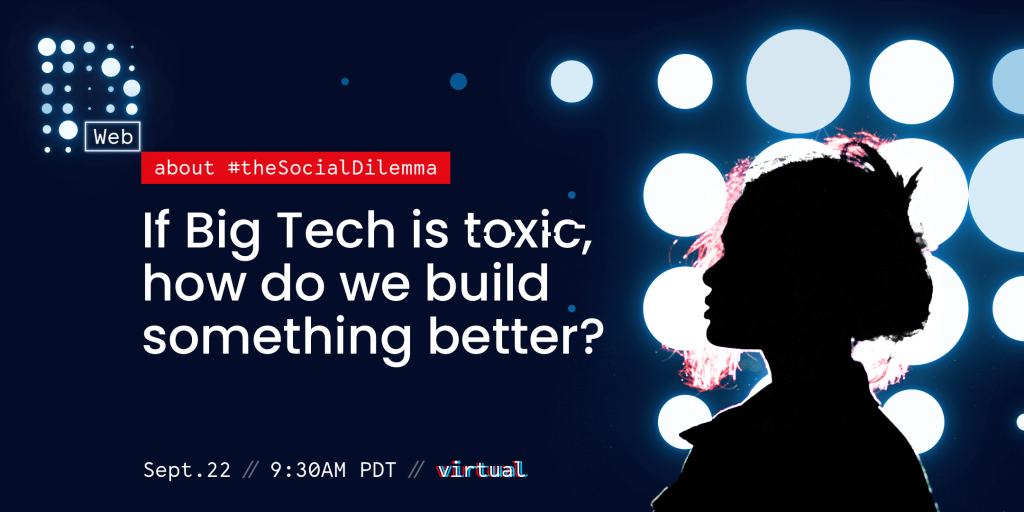
Many of us know that the Internet is broken, so how do we build something better? On September 22, DWeb San Francisco invited a panel of experts to share their views on the most viable paths forward. The panelists included author & EFF advisor Cory Doctorow, Matrix.org co-founder Amandine Le Pape, decentralized social media researcher Jay Graber, and TechDirt’s Mike Masnick. They covered a range of approaches — including technical, regulatory, and organizational — that could bring us towards a future where our networks are more resilient, participatory, and decentralized.
ABOUT THE PANELISTS:
Best-selling science fiction author and EFF Special Advisor, Cory Doctorow, emphasized that we need to fix the Internet, not the tech companies by doing a lot more to bring back principles of interoperability, to enable more competition and innovation.
Developer, and founder of Happening, Jay Graber, shared her insights on what she found hopeful about the decentralized web ecosystem, and some of the challenges that some of these protocols still need to grapple with moving forward.
Chief Operating Officer of Element and Co-founder of the Matrix.org Foundation, Amandine Le Pape, shared what she learned as Matrix built a new open standard for real-time communication from the ground up, as well as her ideas on how to counter the information silos of the big centralized platforms.
Journalist and co-founder of Techdirt, Mike Masnick, shared about the way people were realizing the need for change, and also some of his skepticism about how some proposed regulations to enforce interoperability may harm start-ups and other less-resourced projects. Masnick’s 2019 white paper, “Protocols, Not Platforms: A Technological Approach to Free Speech” has been an influential call to arms for the decentralized tech community.
As Mike Masnick writes:
At a time when so many proposals for how to deal with the big internet companies seem focused on spite and anger at those companies, rather than thoughtful discussions of how we get to what’s coming next, at the very least I’m hopeful that others can be inspired…to come up with their own ideas for a better, more proactive approach to a future internet.
Ultimately, that vision—building a better Internet and Web—is the North Star that the DWeb community aims for.